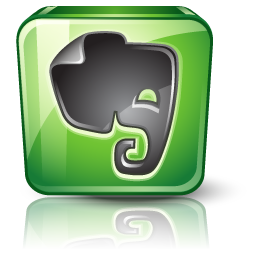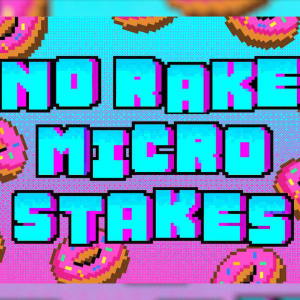Playing an optimized poker schedule makes sure you're always playing at the softest times and when the fields have the lowest variance.
Choosing your spots is an important part of poker. This applies to situations both at and outside of the poker table. Creating and following a good poker schedule is often equally if not more important than
constructing an optimal blind defence range vs. an aggressive button opener or
fine-tuning your barreling frequencies.Choosing a good time for your poker session can sometimes be a much more efficient way of making money at poker than improving your betting patterns. Identify and Assign Available Time

The first step to creating a great poker schedule is figuring out how much time you can spend on poker. If you have a full-time job, family or any other commitments, you should work around them when designing your poker schedule. While the situation might seem a lot simpler when you don't have many non-poker commitments or you're a full-time poker player,
managing your time is still very important. You have to decide how much time you should devote to education and how much of it should be assigned to
grinding.
Once you know the ratio between the two it's time to pick an optimal time of the day for playing.This will depend on the poker room you're playing at and your time zone. Ideally, you'd want to play your sessions when the field is the softest and that means
adjusting to recreational players. Playing from the late afternoon through the late night might be a great idea if you're living in Europe, early morning hours can be your best bet if you're living in Thailand etc. If you're not sure when the recreational to regular player ratio is the most beneficial for you,
consult your database or simply test different hours and pay attention to the table line-ups.
Tools That You Can Use for Making a Poker Schedule

Pen and paper - This solution might seem outdated, but taking a step back to the analog world has some real, tangible benefits. Your notebook doesn't have a touchscreen and can't offer you any of the numerous distractions available to you on your phone or computer. Using a pen and paper to plan your schedule can reinforce the notion that poker is your profession and not just something you do on your computer when you're not browsing social media sites. Unfortunately, the notebook doesn't have a built-in search engine or most of the other convenient features we're used to nowadays. That being said if you want to treat your poker a bit more seriously or if you're just an old soul, pen and paper can be a perfectly valid way of organizing your poker schedule.
 Evernote
Evernote -
This app is fairly similar to the previous solution. While it doesn't have the same benefits and won't defend you from distractions offered by the internet, it has many of the convenient features notebook is lacking. You can search and edit your notes easily. What's even more important, your notes are synchronized with the cloud which makes them harder to lose than the physical alternative. Evernote doesn't have a built-in calendar which will be the biggest issue for most players but you can use one of the calendar templates available online or just make your own!
Google Calendar - Speaking of calendars,
Google has one and it does the job. There's also a lot of competing solutions out there, but most of us won't need anything more complex and if you're already using Google services, the calendar might be the perfect solution for making your poker schedule.
Trello -
This free website is a great visual way of organizing group activities. If you're working closely with a study group or a friend, it might be a great idea to make your schedule using this tool. The fact that the people you're working with know exactly when you should be playing can motivate you to stick with your plan. At the same time, you can use the knowledge about other group member’s schedules to help your friends in the same situation.
Too much of a good thing...
We live in the age of information. It seems like
there's an app for everything nowadays and it's important not to use too many tools. Picking a perfect app for a to-do list, perfect calendar and perfect software for creating and storing notes can seem like a good idea, but it can also result in unnecessary confusion. Besides,
the way you're using your tools is much more important than the tools themselves so instead of stressing over a perfect calendar app, focus on using the calendar you have to the full potential.
Stick With It!

Once you figure out the optimal time frame for your poker sessions
make sure you reinforce the habit of playing in those specific hours. For some people, this can be as simple as setting up an alarm clock 15 minutes before the poker session. Others might need
elaborate rituals including meditation or hypnosis. Make sure your workspace is clean and you have everything that you need to avoid unnecessary interruptions. Keep a bottle of clean water and some dry snacks near you if you're planning on playing a long session. Eliminate distractions from your environment, switch your phone to silent mode, close the browser etc. You should also make time for some regular breaks.
Leave Some Space for Improvisation
 The ability to quickly adjust your approach is among the most important skills of a poker player.
The ability to quickly adjust your approach is among the most important skills of a poker player. That's why you should stay flexible and be willing to take high EV opportunities when they present themselves, even if they are in conflict with your schedule. If you spot a particularly weak player at the tables before your usual session time,
you should consider starting your session earlier. If the tables are particularly good and you're feeling well,
extend your session. Conversely, if
tilt starts creeping in and the quality of the games is way below average
you should consider closing the tables earlier.
Pick the best hours for your session, don't neglect the education, remember to stick with your plan and remember that it shouldn't collide with your other life commitments. As always balance is key and if you don't allow your poker schedule to bleed into the rest of your day (and vice-versa) you'll be much healthier for it in the long run.
 More Top Rated Content
More Top Rated Content
ArticlesCoaching Videos

 Evernote - This app is fairly similar to the previous solution. While it doesn't have the same benefits and won't defend you from distractions offered by the internet, it has many of the convenient features notebook is lacking. You can search and edit your notes easily. What's even more important, your notes are synchronized with the cloud which makes them harder to lose than the physical alternative. Evernote doesn't have a built-in calendar which will be the biggest issue for most players but you can use one of the calendar templates available online or just make your own!
Evernote - This app is fairly similar to the previous solution. While it doesn't have the same benefits and won't defend you from distractions offered by the internet, it has many of the convenient features notebook is lacking. You can search and edit your notes easily. What's even more important, your notes are synchronized with the cloud which makes them harder to lose than the physical alternative. Evernote doesn't have a built-in calendar which will be the biggest issue for most players but you can use one of the calendar templates available online or just make your own!
 The ability to quickly adjust your approach is among the most important skills of a poker player. That's why you should stay flexible and be willing to take high EV opportunities when they present themselves, even if they are in conflict with your schedule. If you spot a particularly weak player at the tables before your usual session time, you should consider starting your session earlier. If the tables are particularly good and you're feeling well, extend your session. Conversely, if tilt starts creeping in and the quality of the games is way below average you should consider closing the tables earlier.
The ability to quickly adjust your approach is among the most important skills of a poker player. That's why you should stay flexible and be willing to take high EV opportunities when they present themselves, even if they are in conflict with your schedule. If you spot a particularly weak player at the tables before your usual session time, you should consider starting your session earlier. If the tables are particularly good and you're feeling well, extend your session. Conversely, if tilt starts creeping in and the quality of the games is way below average you should consider closing the tables earlier.  More Top Rated Content
More Top Rated Content

